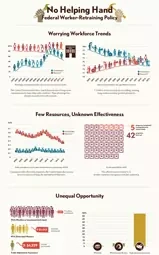- RealEcon
- Israel-Hamas
-
Topics
FeaturedIntroduction Over the last several decades, governments have collectively pledged to slow global warming. But despite intensified diplomacy, the world is already facing the consequences of climate…
-
Regions
FeaturedIntroduction Throughout its decades of independence, Myanmar has struggled with military rule, civil war, poor governance, and widespread poverty. A military coup in February 2021 dashed hopes for…
Backgrounder by Lindsay Maizland January 31, 2022
-
Explainers
FeaturedDuring the 2020 presidential campaign, Joe Biden promised that his administration would make a “historic effort” to reduce long-running racial inequities in health. Tobacco use—the leading cause of p…
Interactive by Olivia Angelino, Thomas J. Bollyky, Elle Ruggiero and Isabella Turilli February 1, 2023 Global Health Program
-
Research & Analysis
FeaturedFollowing a long series of catastrophic misadventures in the Middle East over the last two decades, the American foreign policy community has tried to understand what went wrong. After weighing the e…
Book by Steven A. Cook June 3, 2024
-
Communities
Featured
Webinar with Carolyn Kissane and Irina A. Faskianos April 12, 2023
-
Events
FeaturedJohn Kerry discusses his work as U.S. special presidential envoy for climate, the challenges the United States faces, and the Biden administration’s priorities as it continues to address climate chan…
Virtual Event with John F. Kerry and Michael Froman March 1, 2024
- Related Sites
- More
January 27, 2014
Fossil FuelsRobert Lawrence shows that, absent other changes in the economy, benefits from declining oil imports for the long-term U.S. trade deficit have been overstated.

October 31, 2011
ChinaOverview Internationalization was a spontaneous outcome of the marketplace for the rest of the world’s major currencies, but China is breaking with history by making it official policy to steer th…

January 11, 2016
Financial MarketsSteven A. Tananbaum Senior Fellow for International Economics Robert Kahn argues that 2016 looks set to be a volatile year in which geopolitics and hard-to-quantify policy dilemmas create significant uncertainty in markets. Policymakers will be asked to make tough decisions about where and when to intervene in markets at a time when their capacity to deal with crisis is increasing challenged, suggesting the road ahead could continue to be bumpy.
May 6, 2014
RussiaSteven A. Tananbaum Senior Fellow for International Economics Robert Kahn discusses what sanctions on Russia could mean for global markets.
February 1, 2016
Labor and EmploymentA decade ago the United States had the lowest share of long-term unemployed workers among developed nations. But today U.S. long-term unemployment levels are nearly as high as those in Europe, despite stronger overall U.S. economic performance. This Progress Report and Scorecard demonstrates that U.S. federal employment and training programs that assist job seekers do little to help the long-term unemployed prepare for different careers.

 Online Store
Online Store
